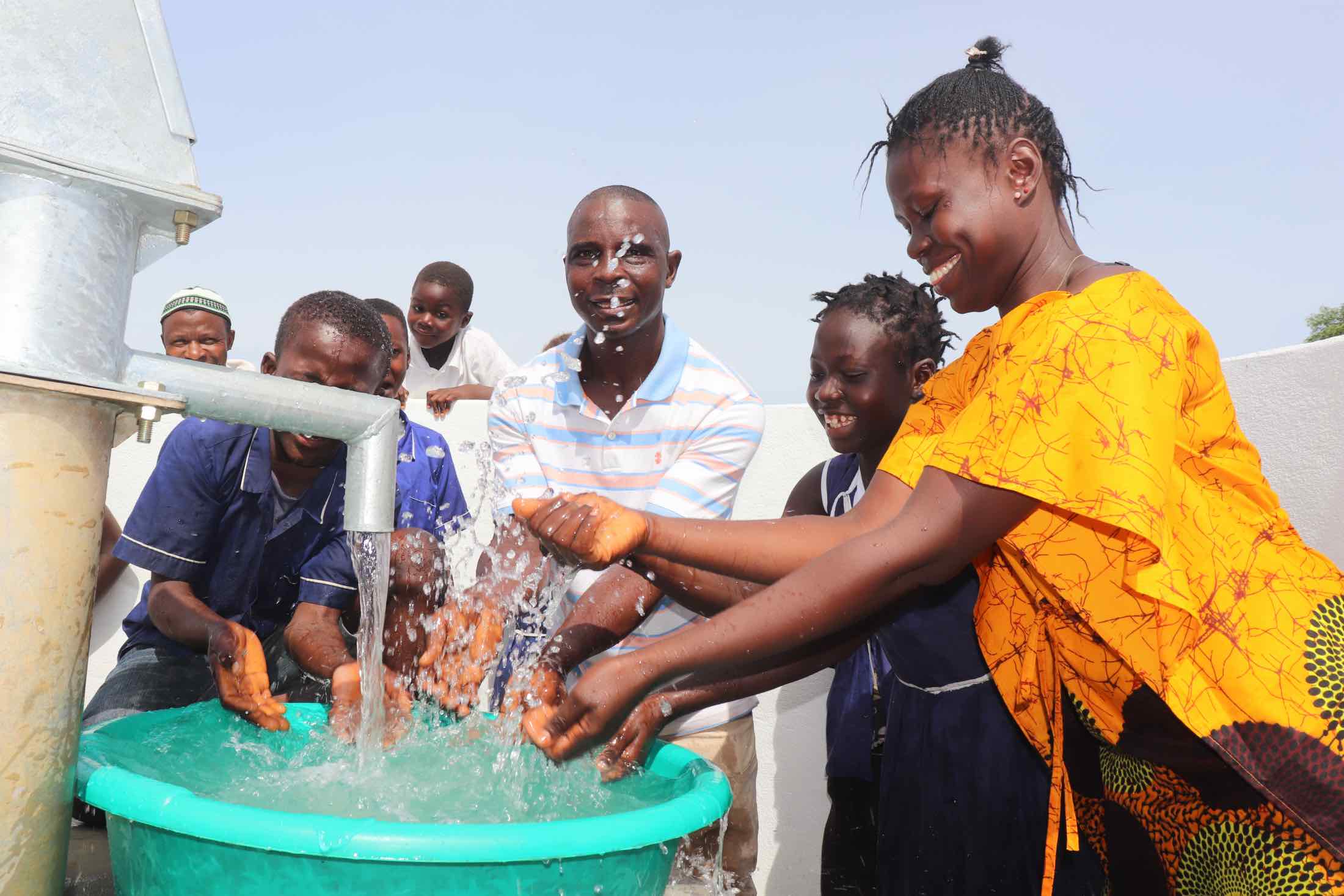Movement of Faith Islamic Primary School is located in the village of Robay, four miles away from Borope village. Located on the main Port Loko Highway, it is far away from other villages making it nearly impossible for people to fetch water from the neighboring villages. All of the large trees in the area have been cut down to process charcoal.
The school was established in 1987 by the Movement of Faith Islamic Mission to improve the educational aspiration of children who would otherwise be left out of the educational system. Today, the school population of 175 students is made up of children from the surrounding villages. The school consists of a single building, two latrines, and a well, all within the school compound.
Unfortunately, the hand-dug well at the school is no longer functional. The main source was constructed and completed in 2013. Even though the project was completed, the school and community stakeholders were skeptical about the project's sustainability, so they continued to use the open swamp scoop hole to get water. Two years ago, the well stopped working entirely. Today, the school relies entirely on the open swamp for water.
The water crisis is one of the major contributing factors of primary school dropouts. The school children travel a distance of more than a mile to fetch water from a hole dug in the swamp. The round trip takes up to 40 minutes depending on how many people are fetching water there already. For students, it can take up to an hour to fetch enough water to fill a single 20-liter container.
"Every day, children are taken out of their classrooms to fetch water. Since the distance is far from the school, it is in the best interest of the students and staff to avoid repeat visits by making sure a large number of students go at a time to bring back sufficient water that can last for the entire school day," explained Head Teacher Hassan Dumbuya.
According to the interviewees and looking at the water from the alternate source, there is a likely chance that typhoid, malaria, cholera, diarrhea, and dysentery are prevalent in this community. A quick look at the water shows a dark brown color with traces of clay and worms.
"Fetching water is a major issue for the school and community. I cannot remember a day I have had access to clean and safe water," said Ramatu K, a student at the school.
Ramatu expressed her commitment to going to school, but she listed the lack of access to water as one of the main obstacles to staying in school.
"Throughout the day, either by my parents or teachers, I find myself and other children in the community traveling the road more than anything else. Little time do we have for ourselves. As a young girl, I spend most of my days either fetching water for the school or my parents, and the other half of the week is spent doing laundry and helping to prepare a full course meal," she said.
Here’s what we’re going to do about it:
Well Rehabilitation
The well marked for this overhaul is currently dry and needs major work to supply adequate, clean water to the community year-round. The team will remove the pump, and a hand auger will be lowered inside and powered by a drill team. This hand auger will allow the team to drill several meters deeper to hit a sufficient water column to ensure the well supplies water throughout all seasons.
As the team drills, the casing will be installed, transforming the bottom of this hand-dug well into a borehole. PVC piping will connect this lower system directly to the pump, a construction that we know will also improve the quality of water.
Once this plan is implemented, everyone within the community will have access to safe drinking water, even through the dry months.
Hygiene and Sanitation Training
Our team will offer hygiene and sanitation training sessions for three days in a row.
After our visit, the hygiene and sanitation trainer decided it would be best to teach community members how to build a tippy tap (a hand-washing station built with a jerrycan, string, and sticks). They will use these tippy taps for handwashing demonstrations and will also teach about other tools like dish racks and the importance of properly penning in animals.
This training will also strengthen the water user committee that manages and maintains this well. They enforce proper behavior and report to us whenever they need our help solving a serious problem, like a pump breakdown.

 Borehole Well and Hand Pump
Borehole Well and Hand Pump






























